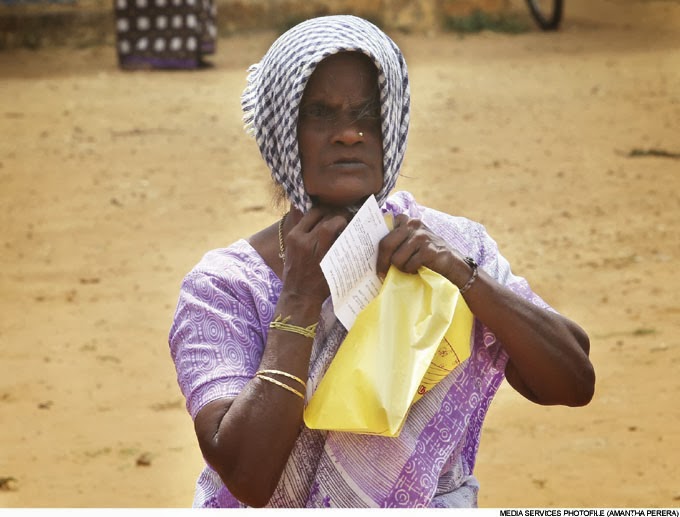Not many decades ago, our country was held up worldwide for its welfare state policies. Today, unfortunately, such praises are but a distant dream. Poverty rules the day-to-day life for a large number of our citizens.
Yet none of the political parties who are now canvassing for our vote, have come out with a single concrete proposal of how they intend to get this country out of its present dilemma.
In these columns, we have highlighted times out of number, the huge difference between the average wage and the cost a family of four needs to bear if they are to have two square meals a day. That cost amounted to over rupees one hundred thousand a month!
On the tea and rubber plantations -until the president recently forced owners to pay workers Rs. 1,700 per day workers were paid less than Rs. 1,000 per day. Daily paid or casual workers elsewhere in the country who form a majority of the country’s workforce receive less than Rs. 55,000 per month.
Yet, life is not merely about eating two meals a day. There is a problem with medicines in times of illness. The cost of even basic drugs has sky rocketed way beyond the means of ordinary workers. Children’s education though heavily subsidised is yet another additional expense.
The last housing needs survey by the government conducted in 2016 showed 800,000 families out of 6 million families in the country did not have a home of their own.
The World Bank estimates that more than half of Colombo’s residents live in illegal settlements or in houses designated as unsuitable for human habitation. Living conditions in the slums or ‘wattas’, in the central, northern and northeastern parts of Colombo; are inadequate.
The city’s pipe network only covers 56% of the low-income urban areas. Only 51% of the households have access to the city’s sewerage network.
The World Bank report of 2022 stated urban and rural poverty in Lanka was estimated to have tripled and doubled, to respectively 15 and 26 percent while more than half of the population in estate areas still lives below the $3.65 poverty line. Poverty is projected to remain above 25 percent in the next few years due to the multiple risks to households’ livelihoods the report added.
As though all of this was not bad enough K.G. Lanerolle, (Director of the National Secretariat for Elders, the government body that implements welfare programmes for older people) has pointed out that our country has the fastest-growing aging population in South Asia. According to the World Bank, around 16 per cent of our 22 million population are over 60. By 2041, that will rise to one in four or 25% of the population.
Making the situation of our people worse, we have no universal pension system. Thus many -especially among those in the informal sector have been left vulnerable in their old age. Today’s economic circumstances have resulted in the breakup of the extended family system which in earlier times supported elders in a family. It also explains the large numbers of elderly beggars on the roadsides and those taking shelter at night in enclosed bus stops.Politicians today are outdoing each other with claims of solving the problem of our external debt. But we have not heard any mention of how they will look after the needs of those who served this country all these long years.
Are they to be castigated into dustbins of history with ne’er a thought?
